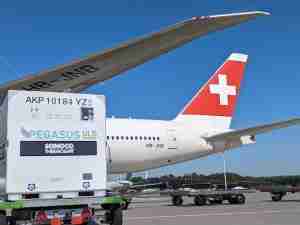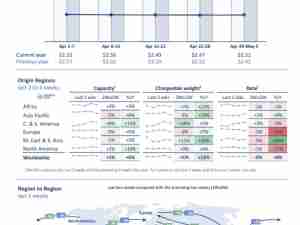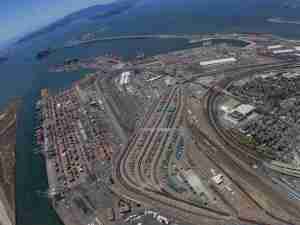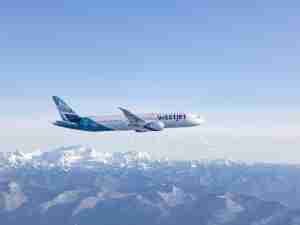Is Cathay’s Late Show a Final Bow for Independence?
By: David Fickling | Aug 16 2017 at 05:42 AM | Air Cargo
Airlines that don’t have much to brag about on the earnings front typically turn to other measures to make themselves look good.
One gauge that often pops up in lean times is on-time performance: We may not be making any money flying people round the world, but at least we made the planes run on time!
This week, Cathay Pacific Airways Ltd. Chief Executive Officer Rupert Hogg can’t even boast about his promptness. The company’s first-half results, which revealed a HK$2.05 billion ($262 million) net loss, finally skulked out four-and-a-half hours after the promised midday Hong Kong release time. Passengers who departed Hong Kong Airport at the time the results were due to be released could have been touching down in New Delhi by the time the numbers saw the fading light of day. (On the bright side, the results showed that on-time performance improving to 73.1 percent from 71.4 percent a year earlier.)
The dwindling band of Cathay Pacific shareholders were only moderately unsettled by the delay, with around HK$10 billion of shares changing hands on lower-than-usual volumes, pushing the stock up as much as 1.7 percent in the morning, before the missing results caused the afternoon session to give up about half of those gains.
More interesting was the response of investors in its two largest shareholders, Swire Pacific Ltd. and Air China Ltd. Swire, with 45 percent of the equity, rose as much as 1.2 percent on relatively heavy volumes, while 30 percent shareholder Air China slumped as much as 3.3 percent to its lowest level in three months. Each saw about twice as much stock by value as Cathay Pacific change hands over the course of the day.
There’s a fairly transparent pattern behind those share price moves. Investors are betting that, with the local champion on the ropes, Beijing is about to swoop in and claim Cathay Pacific as its own.
A cash takeover would be the most plausible option, given Cathay Pacific’s own cross-shareholding in Air China’s equity. For the buyer, such a move would weigh on a balance sheet that’s already on the weak side for a major airline; Swire, on the other hand, would see about a third of its debt wiped out.
As Gadfly has argued, the interests of the Swire family, who have controlled the carrier since its founding in 1946, represent a significant stumbling block to any such deal emerging. But with Beijing tightening its grip on Hong Kong—whether through last month’s announced takeover of its homegrown container shipping line, or the abduction of local booksellers—the group prepared to bet against China getting its way are a dwindling band.
Cathay Pacific’s long-suffering shareholders have waited a long time for good news. A few hours of idle speculation has proved just the thing to perk their spirits up.
This column does not necessarily reflect the opinion of Bloomberg LP and its owners.












